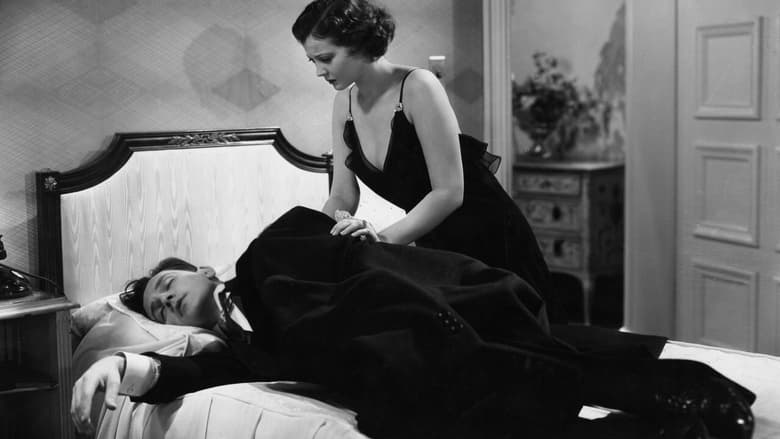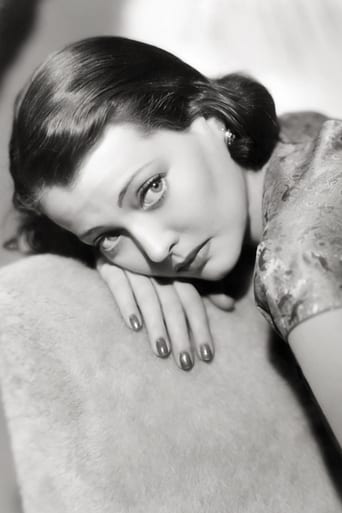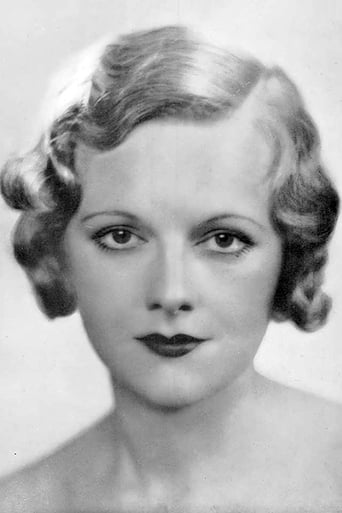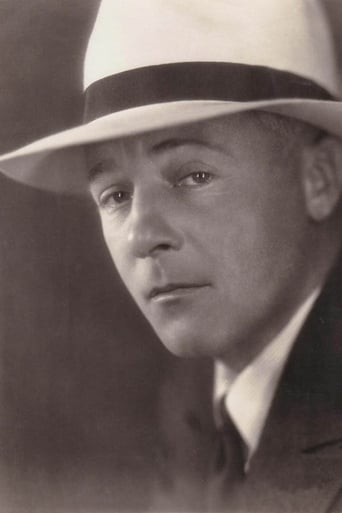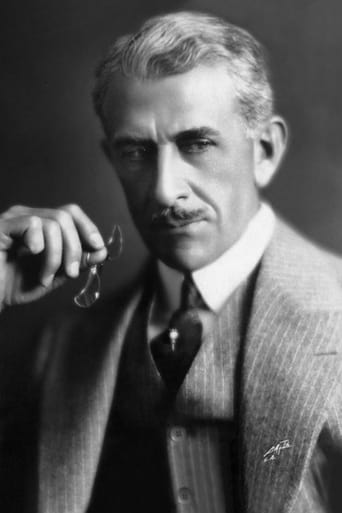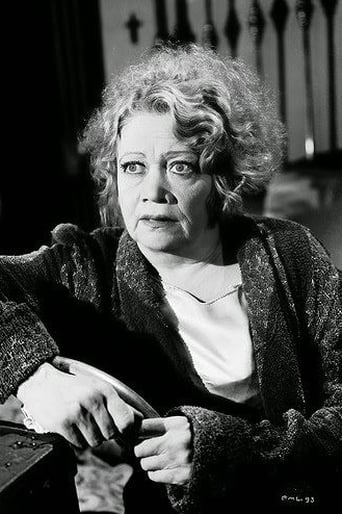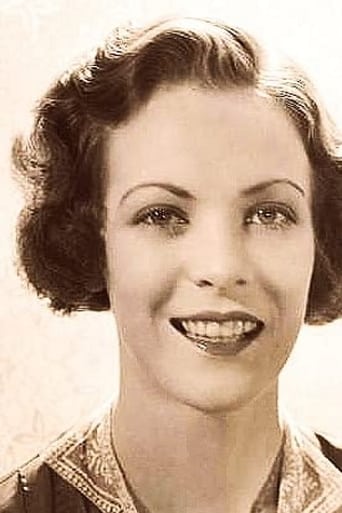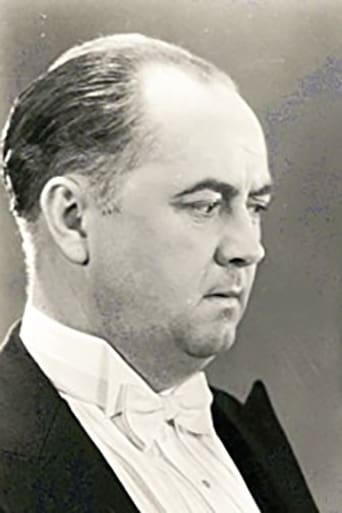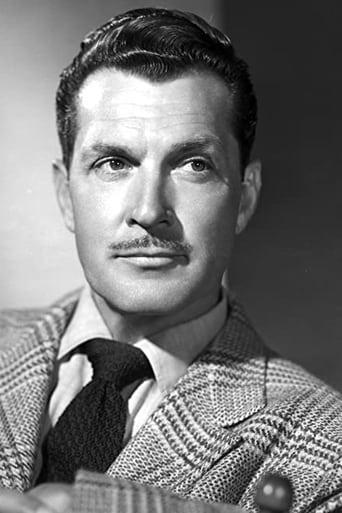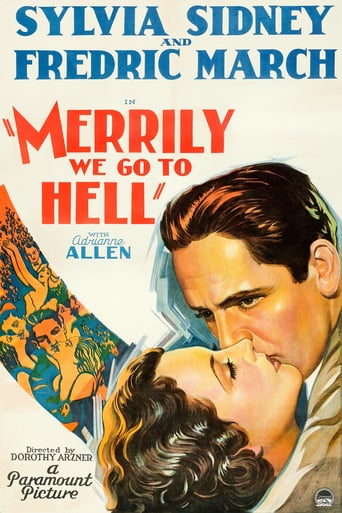
Merrily We Go to Hell
June. 10,1932 NRA drunken newspaperman, Jerry Corbett, is rescued from his alcoholic haze by an heiress, Joan Prentice, whose love sobers him up and encourages him to write a play, but he lapses back into dipsomania.
Similar titles
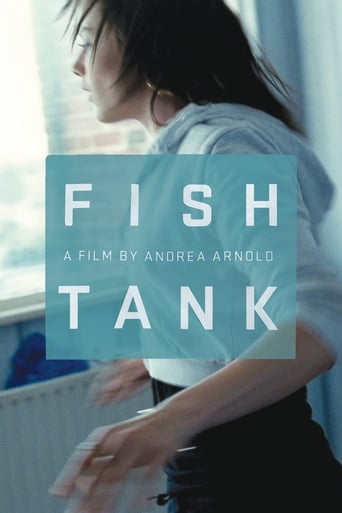
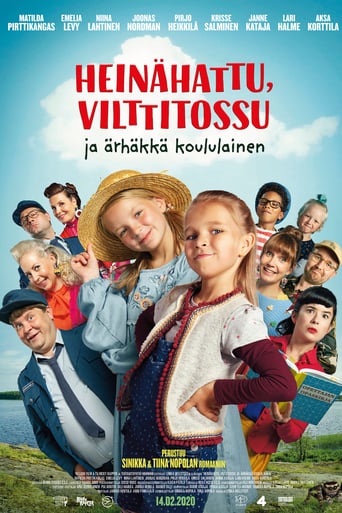
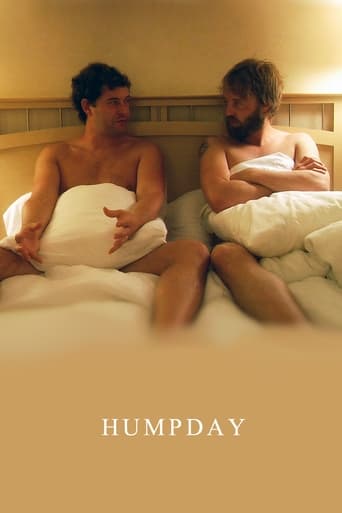
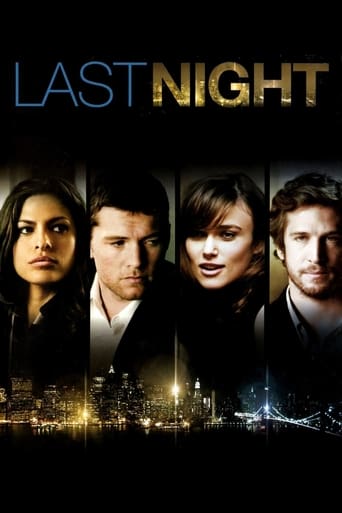
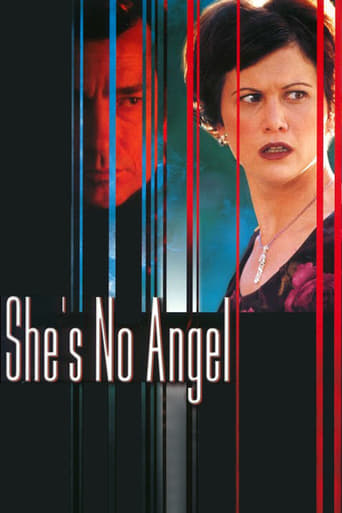
Reviews
Instant Favorite.
Admirable film.
By the time the dramatic fireworks start popping off, each one feels earned.
The film never slows down or bores, plunging from one harrowing sequence to the next.
Clever dialogue, fantastic acting, and several great scenes made this film a delight for me, but be forewarned, its main character may have you saying 'grrr', and reduce your enjoyment. Frederic March plays a newspaper reporter / playwright who has a drinking problem, and it's while he's drunk at a party that he meets a charming young lady, played by Sylvia Sidney. The two hit it off and despite the concerns of her rich father (George Irving), get married. Things get complicated when his ex-lover (Adrianne Allen) re-surfaces and he struggles to control his problem.It's a very strong cast all around, and Sidney in particular turns in a great performance. She ranges from a sweet, naïve, and trusting soul, loving unconditionally, to hurt and confused, to woman whose solution is to give her husband a taste of his own medicine, in a rather shocking development. The scene with her partying with her own young lover (Cary Grant no less) and his friends and quipping "Gentlemen, I give you the holy state of matrimony, modern style: single lives, twin beds and triple bromides in the morning" is sad, empowering, and a little thrilling all at the same time. As they're in a bar that's practically a den of iniquity, it's all clearly pre-code, but there is an intelligence and honesty in this scene, and throughout the movie.March is also strong as this affable but flawed man, and in early scenes we smile at his partying, at one point yelling "Is there a baritone in the house?" until he finds a barman to fill out a quartet with his friends so that they can break out in song. The warning signs are there in his tardiness and even at his wedding, as he and his best man (Skeets Gallagher) fumble for the ring, which he's forgotten. That scene is one of several that are well directed by Dorothy Arzner, as she cuts to guests making observations and the facial reactions of March and Sidney as they say their vows.There is a lot of partying and revelry which may put some viewers off, but I found that allowed for some fantastic moments. In one, March asks Sidney to shut the door and hold him back from going to the other woman, and in a strong way she opens it wide and says "I'm no jailer - get out!" In another, as March and Allen 'play-act' a passionate kiss to the merriment of others right in front of her, we feel the shock and humiliation amplified by her brilliant facial reaction. The title is clearly meant to titillate, but the film has real substance beneath. It's wild, but also realistic, though I didn't care too much for the ending. We see what destructive behavior leads to, and in that I suppose there is a message, but it's delivered without heavy-handed moralizing. The plot is a tad melodramatic, but it's daring and unique in the areas it explores. Well worth checking out, if you're in the mood for pre-code.
Plucky rich daddy's girl Sylvia Sidney falls for charming drunk reporter Frederic March. Enabling, delusion, mutual dive ensues.Sidney's work is the reason to see this one -- she tirelessly, valiantly tries to breathe life into this otherwise badly-written, badly-directed 'racy' pre-Code weeper. (It pains me to say that: Dorothy Arzner was the only female features director in Hollywood in the 1930s, and reportedly part of Nazimova's crowd of fabulous lesbians).March's work is general and repetitive -- thoroughly unconvincing. It's an amateur's performance. He got a chance to make amends a few years later as the charming drunk in the superior 'A Star Is Born'.Newcomer Cary Grant gets a few seconds screen time as a hot side piece in the tawdry perdition sequence. Old vaudevillian 'Skeets' Gallagher keeps threatening to do something as magical as his name, but never gets the chance.'Merrily We Go to Hell' is a waste of a great title. Pity.
A wonderful and unsettling pre-Code film about an alcoholic playboy (Fredric March) who marries a sweet young thing (Sylvia Sidney) and proceeds to drag her down his path of dissolution. The depiction of their marriage is quite shocking, even by today's standards -- not only do they have an "open" marriage, they openly practice that freedom in front of their friends, suggesting a swinging lifestyle that wouldn't become approachable as subject matter in films for another 30+ years. March and Sidney give fantastic performances, and Dorothy Arzner, one of the rare women directors of the time, takes a matter of fact approach that leaves behind the melodrama and sentimentality that might have blunted this same story's impact in the hands of someone else.One of the most refreshing aspects of "Merrily We Go to Hell," and one of the most shocking, is that Sidney's character does not suffer nobly while we wait for March to see the error of his ways and come back to her a chastened man. Instead, Sidney starts to behave just like him, coming within a stone's throw of alcoholism herself, and doing her own share of philandering. In that way, the film is even a little progressive in its equal treatment of the genders, even if that equality is the equality of debauchery.Grade: A
This is a movie that has a lot to say about 'modern' relationships, drinking, and feminism of the time. And for the most part the execution is very good.Merrily We Go to Hell is an extremely well acted film, but that to me is not the highlight of the movie. It's the writing with realistic characters and funny moments that are the best part of it. It is one of the better performances I've seen from Sylvia Sidney, which is a little odd as its one of her earliest.Fredric March stars as a man who doesn't deserve the love of a rich girl that has fallen for him. He's frequently drunk (the title of the film is his favorite drinking toast) and disappoints her at nearly every turn. It's hard to understand exactly what Joan (Sidney) likes about him so much. But that's the way love is sometimes. Joan takes the good with the bad and always seems to forgive the bad, no matter how appalling. Jerry (March) is still getting over his last relationship, attempting to drink it off.One moment in that part of the story was a highlight for me, where Jerry mentions his previous girlfriend. Joan asks if he has a picture of her, and he responds by saying he has one hidden away somewhere that he looks at once in a blue moon when he's feeling lonely. The movie immediately cuts to him arriving home and the picture of the girl he was mentioning is framed on the wall, with a personal note written to him on it. A clear omen for things to come.Merrily We Go to Hell does a fabulous job showing the dark side of drinking, something movies of the time rarely did. As the overall weakness of Jerry and Joan's relationship becomes unraveled, it takes Joan just a little longer than it seems like it should to finally get the courage to leave him. This is very much a sign of the times Depression-era picture. Showing the underlying unhappiness in the lives of socialites.If you are are a Carey Grant fan, he is essentially a pawn in the relationship game. As Jerry seems to be falling for his ex, the star of his new play, Joan attempts to give him a taste of his own medicine by going out with the other star of his play (Grant). Grant has maybe 4 or 5 lines.My only major criticism of the movie is the ending. I know it was a written rule in Hollywood at the time for movies to have a happy ending, but I don't consider the two of them getting back together a happy ending. Joan was right to leave him and she never should have taken him back. She was better off without him. Ending on the scene where she leaves would have been a better ending climatically, as well as been a happier ending. But in the time period that ending would not have been possible.
Top Streaming Movies











